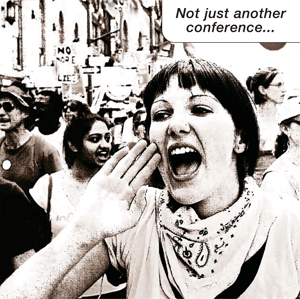A feminist midwifery ‘zine’:
Is midwifery a feminist issue? How do feminists practice midwifery? What are feminists currently thinking about childbearing? What do feminists think about midwives?
This is a ‘call out’ to feminists who would like to contribute to an upcoming ‘zine’ about feminism, midwifery, pregnancy and birthing. A ‘zine’ is an informally published / DIY magazine. If you’ve never seen one then imagine a cross between a leaflet for a local jumble sale, a comic and a text book.
This particular zine will be distributed free or for donations – via free PDF documents and cheap printed copies… contributors will retain original copyright but agree for ‘copy-left’. This means anyone is welcome to copy the zine as long as it’s not for profit and says where the info comes from.
[*Contributions deadline – first draft = 30th August 2008]
You can contribute anything printable to the zine – writing, rants, poems, cartoons, drawings, photos, quizzes and crosswords, origami birth plans, cut out and keep guide to your womb, birth in the NHS self defence tip cards… anything flat!
Please think about making your writing understandable to a wide audience – how you write is up to you, but it might be useful to avoid midwifery jargon or writing in a very academic style.
We are interested in the views of student and qualified midwives; doulas; mums and other parents; birth activists and feminist health folk – if you don’t want to use your name you’re welcome to use a nickname.
Some ideas so far…feminist midwifery: birth without borders? – refugee women birthing in the NHS; queer parenting; freebirthing; trans-men birthing; techno-birth ‘v’ ecofeminism; independent midwifery radical or elitist?; dykes midwives and homosexual panic; earth-mother consumerism; birth as power; birth crisis and birth trauma; sexuality and breastfeeding; dads in the labour room; babybonding – myth and reality; Where are the male midwives?; midwifery, horizontal violence and sexism… Continue reading →


